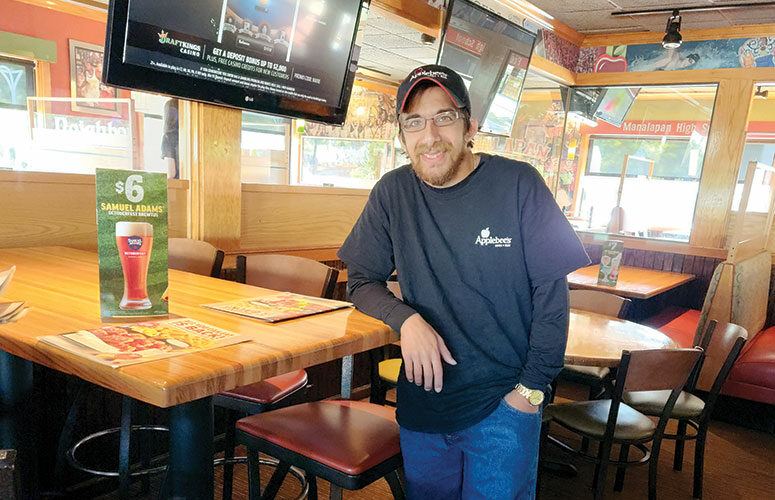
Hiring the Disabled
Workers abound in this win-win situation for everyone involved.
By Lisa Goulian Twiste, Contributing Writer On Nov 8, 2022According to the Centers for Disease Control and Prevention, about one in five New Jersey adults suffers from a disability that impacts major life activities, including their ability to work. Within this group, which includes both the physically and developmentally disabled, about 19% are employed, compared to almost 64% of the non-disabled population, the U.S. Bureau of Labor Statistics reports.
Some New Jersey organizations, lawmakers and businesses are working to improve this number and get more physically and developmentally disabled citizens into the workforce. Not only does this bring positive change to these individuals, but there are proven benefits to the businesses that hire them, as disabled workers tend to stay in their positions longer and are known to be highly motivated and productive.
“As a provider of supported employment services, we are seeing an uptick from employers interested in hiring people living with disabilities and more people with disabilities returning to work post-COVID,” says Tom Baffuto, executive director of The Arc of New Jersey, whose Project HIRE program is working with some 850 New Jersey businesses to assist the disabled in such areas as job matching, sampling, on-site training, and travel training. “More employers are starting to view people with disabilities as a viable workforce and an untapped resource for their organization’s needs. Especially in the current environment, businesses struggling to fill open positions are starting to realize they can fill some of those openings with this available pool of workers who want to work.”
Another organization active in the cause is Easterseals New Jersey, which finds opportunities for the disabled with more than 30 employers in the hospitality, food, retail, pharmaceutical, finance, healthcare and computer industries. According to Daniela Rivera, director, business and employment operations, the organization is all about job-matching – or pairing an individual’s job interests and skills with an appropriate opportunity. “Participants in our employment programs come with a variety of goals, so our partnerships help them reach their career achievements through community placements in businesses, job training and job sampling opportunities,” she says. “We are here to prepare them for full workforce integration in whatever way that manifests. The end goal is always to have paychecks in pockets.”
Additionally, Spectrum Works is a Secaucus-based nonprofit that trains and finds employment for young people on the autism spectrum by building inclusive workforces at companies. The organization, whose partner companies include FM Expressions, Bergen Logistics, Green Light Development, Walgreens, Woow, Zago and Marriott, works with 35 high schools in Northern and Central New Jersey to provide on-the-job training in such areas as manufacturing, distribution, logistics, graphic design, office administration, and retail.
“These young adults enter the workplace as paid trainees, working alongside Spectrum Works job coaches and neurotypical partner company mentors to develop professional skills and potentially be hired full time,” says Ann Marie Sullivan, founder and CEO of Spectrum Works.
“Our model helps young autistic adults live up to their potential while helping partner companies seamlessly employ and integrate autistic people into their workplace and scale their program over time.”
Benefits of Hiring Disabled Workers
There is no doubt that employment yields a host of benefits to the disabled, providing a sense of purpose and self-sufficiency while making them less dependent on social programs. Experts also point to positives like learning independent living and self-advocacy skills and improving their social lives through community integration. “An employed person gains skills and experience they wouldn’t otherwise receive, and having a job offers a sense of purpose and a feeling of belonging to an organization or business,” Baffuto says.
What might not be as apparent, however, are the considerable benefits to companies that hire disabled workers. There are monetary considerations: when you hire someone with a disability, you may become eligible for tax benefits, including the Disabled Access Credit, Work Opportunity Tax Credit, and the Barrier Removal Tax Deduction.
Hiring the disabled can also be good for a company’s image: According to the Department of Labor’s Division of Vocational Rehabilitation Services (DVRS), 92% of Americans say they have a favorable view of companies that hire people with disabilities, and 87% say they prefer to support businesses that hire people with disabilities. Additionally, disabled workers often stay at their place of employment for long tenures, decreasing an employer’s turnover and reducing training costs over time.
One company that has made a commitment to hiring disabled people is ShopRite, which has 306 locations – 169 of those in New Jersey. According to spokesperson Karen O’Shea, the supermarket chain’s goal is to hire people who reflect the diversity of the communities where its stores are based; it has partnered with local schools and community organizations to sponsor supermarket-based learning labs where students with disabilities learn to work in a retail environment.
“We believe it is important to adopt inclusive hiring practices and provide workplace accommodations for disabled individuals,” O’Shea says. “These practices expand access to a wide range of career opportunities and help enhance the work environment with new people, perspectives and skills.”
Protection Under the Law
New Jersey is somewhat of a pioneer in its commitment to the disabled. The New Jersey Law Against Discrimination (LAD) – the first of its kind when it passed in 1945 – prohibits employment discrimination based on several criteria, including “mental or physical disability.” This was underscored with the passing of The Americans with Disabilities Act (ADA) in 1990, which prohibited job and other types of discrimination against people with disabilities. On a state level, the New Jersey Division of Vocational Rehabilitation Services (DVRS) provides vocational rehabilitation services to those with physical or mental disabilities, including placement services, skill development (i.e., resume writing, interviewing skills, and job search organization), job coaching and accommodations, emotional support, vehicle and home modifications for employment-related purposes, and job maintenance strategies.
State government became even more proactive earlier this year when the New Jersey Civil Service Commission (CSC) launched the State as a Model Employer of People with Disabilities (SAME) program that provides fast-track hiring and advancement employment opportunities for people with disabilities. “We have been fortunate to receive great support from the New Jersey Legislature to help promote employment as a real and viable option for people with disabilities,” Arc’s Baffuto says.
Yet challenges remain in the quest to see more disabled people find employment. Easterseals New Jersey is currently trying to increase reliable and affordable transportation, which can often be a barrier to employment. Disabled people also need counseling on how to stay employed in the community without losing the benefits they rely on, such as Supplemental Security Income (SSI) and/or Medicaid. According to Sullivan, companies with the desire to hire more diverse workforces often lack the resources to identify, engage and integrate these individuals, and that’s where an organization like Spectrum Works comes into play.
To access more business news, visit NJB News Now.
Related Articles:





